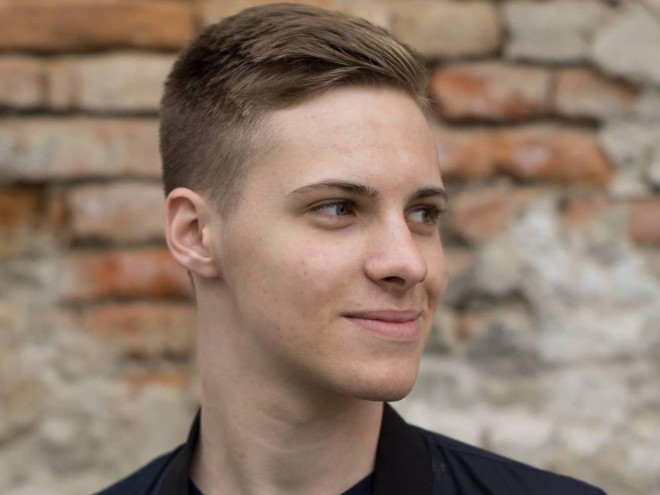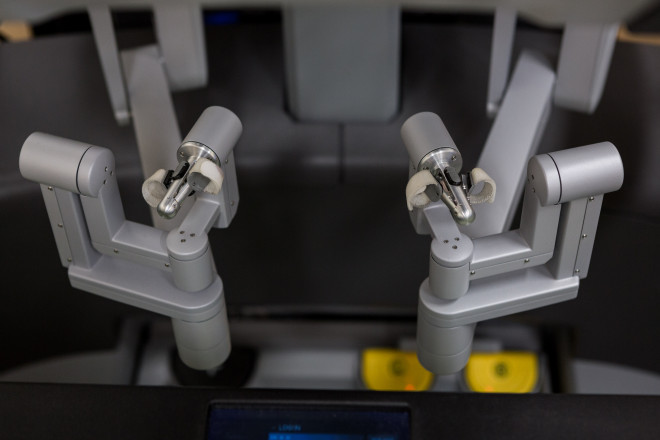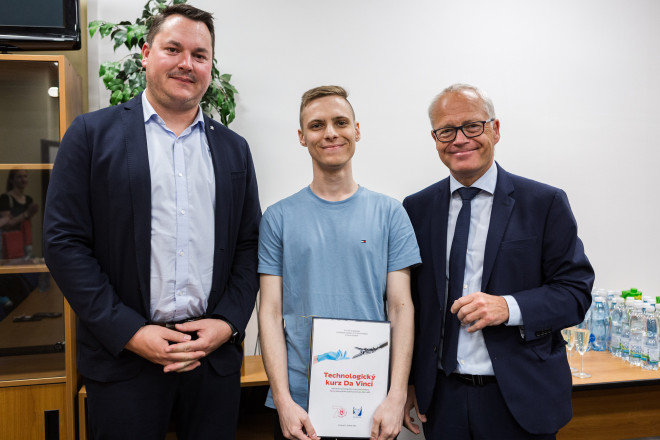
Sandro Vadovič won the second year of the Robotics Olympics. He took advantage of the opportunity offered by the Second Faculty of Medicine and already in the 3rd year of his studies he obtained an internationally valid robotic assistant certificate.
Do you see yourself as a robotic surgeon?
I have no idea yet which direction I will take. But surgery is one of the fields that I’m interested in.
So you went to the Robotics Olympics just to find out what it's like to control a robot?
Yes, I went to see if I might be interested. And surprisingly, I enjoyed it.
How did you find working with the robotic console?
The camera was probably the most unintuitive. In my head, I moved the camera image differently than it was displayed in the console. But it was pretty well done on the controls. There was nothing that you couldn't figure out or that you needed X hours of training to understand how to work with.
There is a theory that those who play computer games are more successful in robotic operation. Is this your case?
It certainly is my case, but I don't know if I would attribute my victory to that. Rather, it is necessary to have good spatial orientation and to keep calm.
What made you sign up for the Robotics Olympics?
I wanted to use the chance to try something like this, since the Second Faculty of Medicine already offers that option. I thought that if I didn't try it, I might blame myself for not taking advantage of it.

How much time did you spend practicing?
It was about an hour all at once. I was alone at the exercise, I didn't have to take turns with anyone.
How long did the scoring part of the competition last?
There were three tasks that took about three, four minutes each.
How distracted were you by your surroundings?
No one was upset, everyone was cool, overall it had a relaxed atmosphere. No one stressed. As for the organization, it was done amicably. There weren’t any attempts to stress each other out.
In the same room as the robotic console were some laparoscopic trainers. As participants in the Robotics Olympics, you also had the opportunity to try them out. According to your first experience, how different is working with a laparoscopic method and a robot?
The robot was easier for me. You didn't have to stand and have your hands relatively high, because I'm rather short. If I had my hands in the laparoscopic instruments for a long time, I would probably lose stability quickly. This is what the robot compensates for.
Would you recommend the Robotics Olympics to your peers?
In general, I would recommend to anyone that if there is a chance to try something, go for it. You never know what will come of it.

As the winner, you received a full-fledged foreign training course for working with the Da Vinci system from Synektik. Where will you go to get your robotic assistant certificate?
They haven't contacted me yet, so I haven't looked into it. I would ideally choose a German-speaking country.
Are you planning another stay abroad in the form of an internship or Erasmus?
I definitely want to use this option. I already thought about an internship this year, but I didn't know how I would do with the exams, so I put it off. But I definitely want to take advantage of that opportunity and go for half a year as part of the Erasmus program, even if it prolongs my studies. One should take the chance to see the world and look around.
What made you want to study medicine?
Desire for knowledge. I have always been interested in how the human body works. What and why is happening in it. And that was the main reason I went here. I wanted to understand why diseases break out in the human body, how hereditary diseases work and how they arise. What happens, how the body reacts to it. And, my grandmother taught at a health care school all her life. Whenever she looked after me, she didn't know how to occupy me, so she taught me how to measure my blood pressure and things like that. So I was very interested as a child.